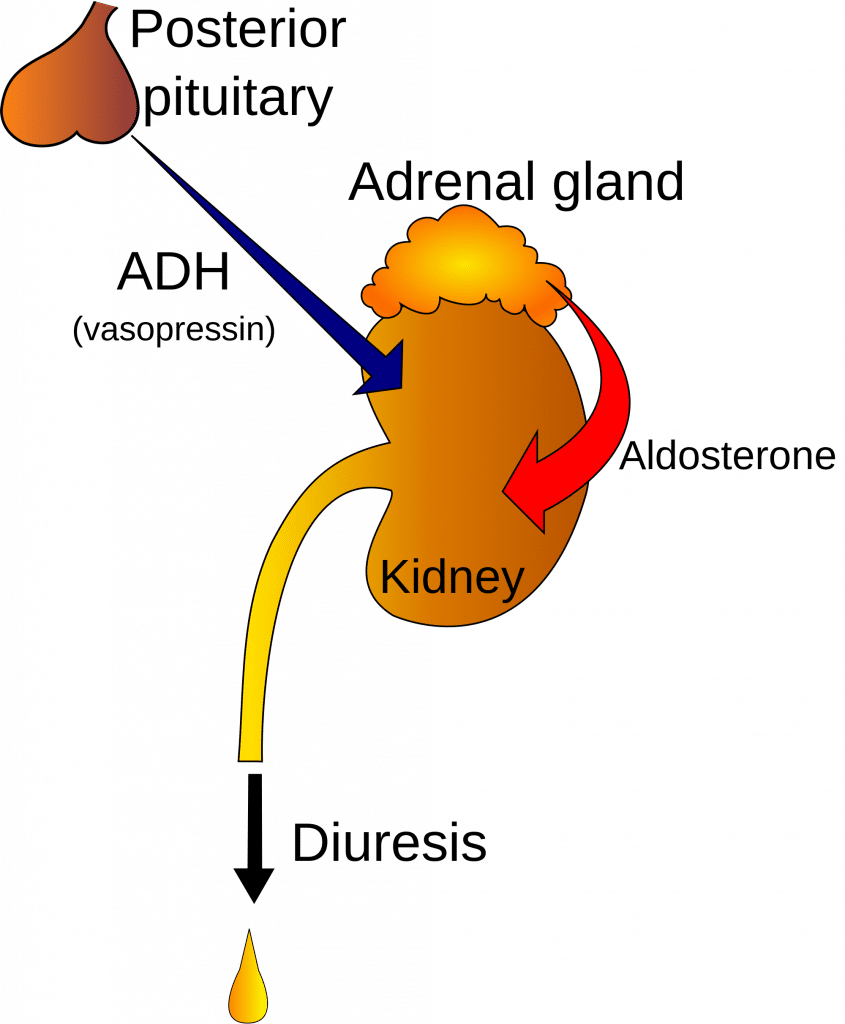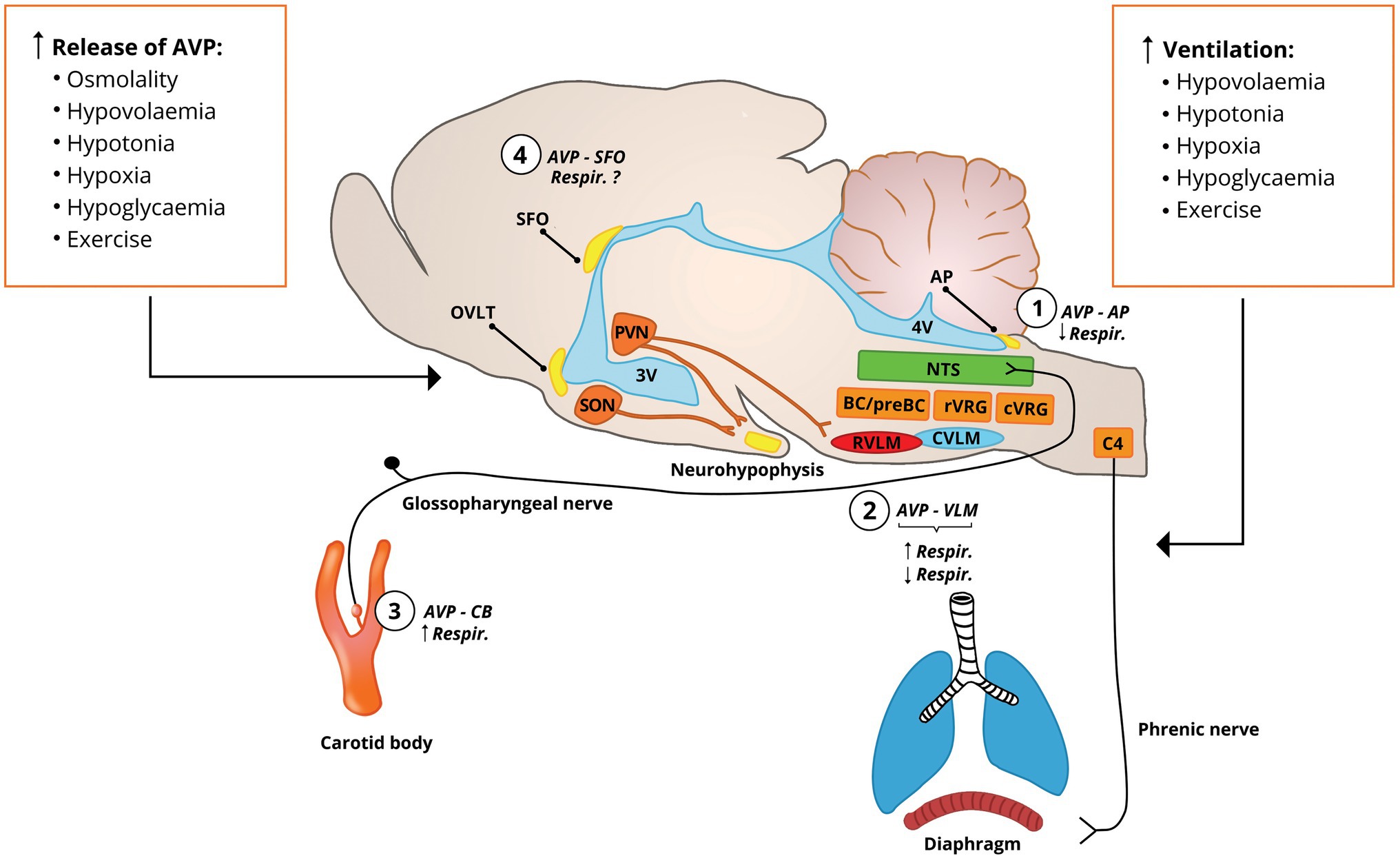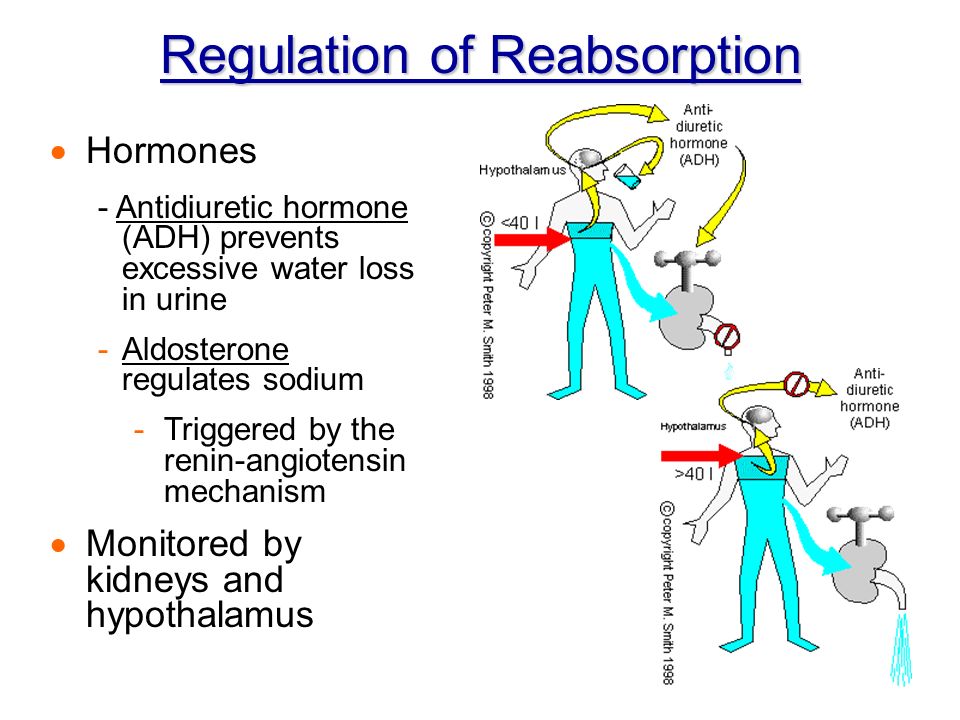Antidiuretic Hormone Prevents Excessive Water Loss
This involves the regulation of blood volume and blood concentration. Antidiuretic hormone ADH helps regulate the amount of water in your body.

Antidiuretic Hormone Adh Synthesis Release Teachmephysiology
If a person did not produce aldosterone what would happen.

. The only common problem before old age Escherichia coli E. Diabetes insipidus is a condition where you either make too little anti-diuretic hormone usually due to a tumour trauma or inflammation of the pituitary or hypothalamus or where the kidneys are insensitive to it. C distal convoluted tubule.
Antidiuretic hormone ADH prevents excessive water loss by promoting water reabsorption in the ________. Which hormone prevents excessive loss of water. Antidiuretic hormone ADH promotes the movement of water from the filtrate back into the blood of the peritubular capillaries.
Antidiuretic hormone Which part of the nephron is under the control of the hormones ADH and aldosterone. In primary polydipsia the low level of anti-diuretic hormone represents an effort by the body to get rid of excess water to stop the blood becoming too dilute. As such a hyper-secretion of ADH will result in less urine by volume and the urine will have a lower concentration of water.
Antidiuretic hormone or ADH is a hormone that is produced in the hypothalamus and released by the pituitary gland. The result is a loss of Na with water following passively by osmosis. Collecting duct Extracellular fluid is found everywhere in the body EXCEPT.
Antidiuretic hormone ADH The kidneys can help maintain a rising blood pH by excreting ________ ions and reabsorbing ________ ions by the tubule cells. Atrial natriuretic peptide b. Its primary jobs are to help the kidneys maintain your bodys fluid levels and to control blood pressure.
The single most important effect of antidiuretic hormone is to conserve body water by reducing the loss of water in urine. He or she would have unregulated ion concentrations in the blood b. When the body has excess water the pituitary gland secretes little vasopressin enabling the kidneys to excrete excess water in the urine.
B proximal convoluted tubule. A diuretic is an agent that increases the rate of urine formation. The hormone released by the posterior pituitary to prevent excessive water loss in the urine is _____.
What hormones regulate water and solute reabsorption. When the body is low in water the pituitary gland secretes vasopressin also called antidiuretic hormone into the bloodstream. Causes the kidneys collecting ducts to reabsorb more water Alkalosis pH above 745 Acidosis pH below 735 urinary infections are.
It works to control the amount of water your kidneys reabsorb as they. In response to ADH the collecting duct and distal tubule in the kidney become more permeable to water which increases water reabsorption into the capillaries. ADH increases water reabsorption in.
When ADH also called vasopressin is produced in excess the condition is called syndrome of inappropriate antidiuretic hormone SIADH. Antidiuretic hormone prevents excessive water loss by promoting water reabsorption in the. Vasopressin stimulates the kidneys to conserve water and excrete less urine.
ADH controls how your body releases and conserves water. ADH is released from the hypothalamus in response to high tissue osmolarity. Coli a type of bacteria accounts for 80 of UTI urinary tract infections nocturia.
Osmotic diuretics promote water loss by osmosis. The body adjusts to. ADH is short for Anti Diuretic Hormone and it prevents excess water loss.
ADH is an important hormone that is responsible for water osmolar and blood pressure homeostasis. Aldosterone is a hormone produced by the adrenal medulla. It inhibits the Na Cl symporter in the DCT and collecting duct.
The most frequently prescribed anti-hypertensive diuretic is hydrochlorothiazide. Antidiuretic hormone ADH is important in maintaining homeostasis in mammals. Antidiuretic hormone ADH prevents excessive water loss in urine.
Its function is vital in times of thirst hemorrhage the third spacing of fluid and other scenarios where there is the diminution of effective arterial blood flow. Increased water intake by increasing urine outputDecreased water intake or increased exercise by decreasing urine outputTo do this your bodys nervous system has to communicate with the endocrine systemWater balance is regulated by antidiuretic hormone ADHADH regulates the osmotic pressure of body fluids by causing the kidneys to increase. Women with polycystic ovarian syndrome PCOS are at.
Injection of small amounts of antidiuretic hormone into a person or animal results in antidiuresis or decreased formation of urine and the hormone was named for this effect.

The Urinary System Ppt Download

Frontiers Vasopressin And Breathing Review Of Evidence For Respiratory Effects Of The Antidiuretic Hormone Physiology

Formation Of Urine Figure Ppt Video Online Download
18 3 Regulation Of Body Processes Concepts Of Biology 1st Canadian Edition
0 Response to "Antidiuretic Hormone Prevents Excessive Water Loss"
Post a Comment